On November 3, Netflix premiered The Harder They Fall, a film set in the late 1800s about revenge with a bit of history, executive produced by Shawn “Jay-Z” Carter. The movie includes a fantastic and showstopping cast of Regina King, Idris Elba, and Jonathan Majors.
The film, one of the year’s most highly anticipated films, calls for some historical storytelling as we have several leads playing real Black people from Black American history. One of these people is Stagecoach Mary. Mary Fields, also known as Stagecoach Mary or Black Mary, was the first African American star route mail carrier in the United States.
When you do a bit of digging into who Stagecoach Mary was, you can find historical sources citing her as daring, brave, rifle carrying, and hard-drinking. She was quick-witted and did anything needed to protect other stagecoaches.
Stagecoach Mary was a Black, dark-skinned, and plus-sized woman who wore men’s clothing and became a Wild West legend. So why is Stagecoach Mary’s role being played by Zazie Beetz?
Who was Mary Fields aka Stagecoach Mary?
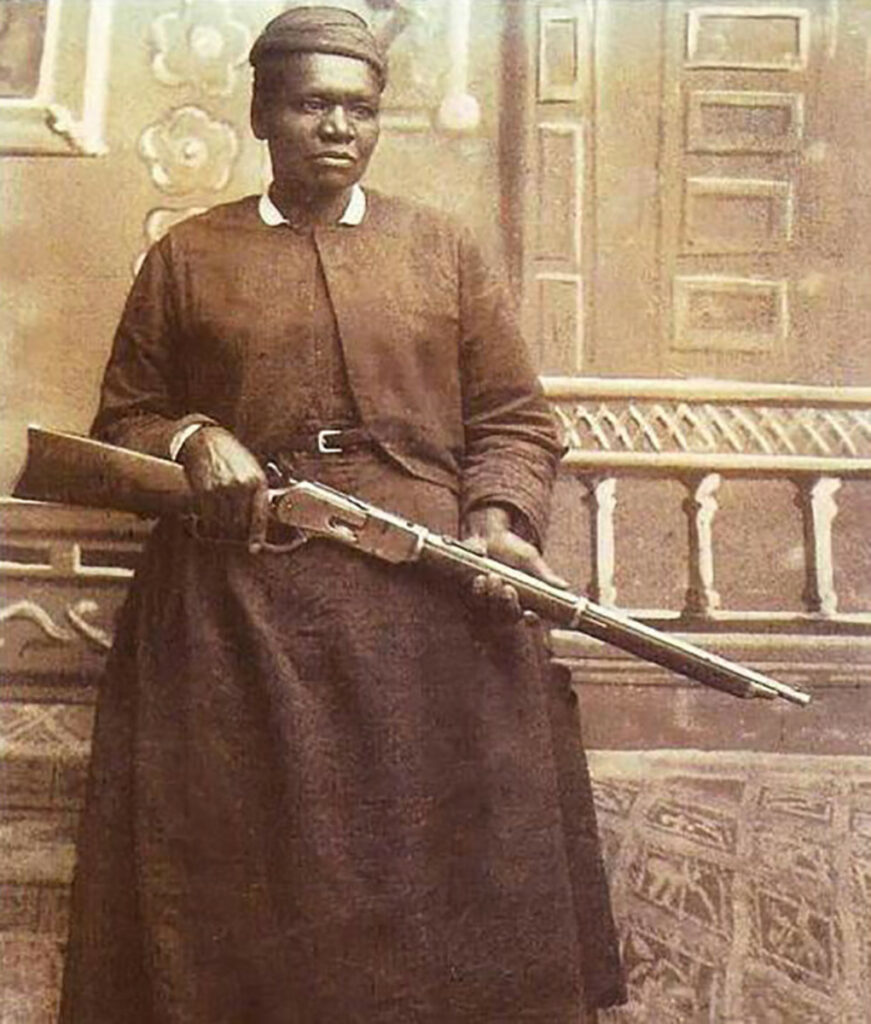
Stagecoach Mary was born in Tennessee in 1832 and freed after the Civil War. During this time of newfound freedom, she moved from working along the Mississippi River, where she worked as a servant to families, to the North, and planted roots in Ohio, where she took security and shelter in a convent.
In the convent, Mary worked as a groundskeeper who often got into tussles with other nuns. Mary was not a subservient woman even though at the time (and still to this day) white women believed that should be the role of Black women; to be quiet and accept what is given to them.
Mary often fought back with her words and wasn’t afraid to stand her ground when she felt she was mistreated. She wasn’t scared to get physical with anybody and was known to be a “cusser.”
Mary was kicked out of the convent after drawing fire – her weapon- on a male janitor. This led Mary to be contracted by the postal service in 1895, becoming the second woman to carry and deliver mail and the first Black woman. For eight years, Mary protected mail from thieves and bandits. She retired due to old age in the early 1900s.
Mary’s Erasure
I painted this image of Mary to you because, believe it or not, the historical context of Mary adjacent to her skin color and size is the reason why Hollywood would instead depict her as a “feisty skinny light-skinned Black woman” vs. the tough, tall, and strong plus-sized dark-skinned Black woman that she was.
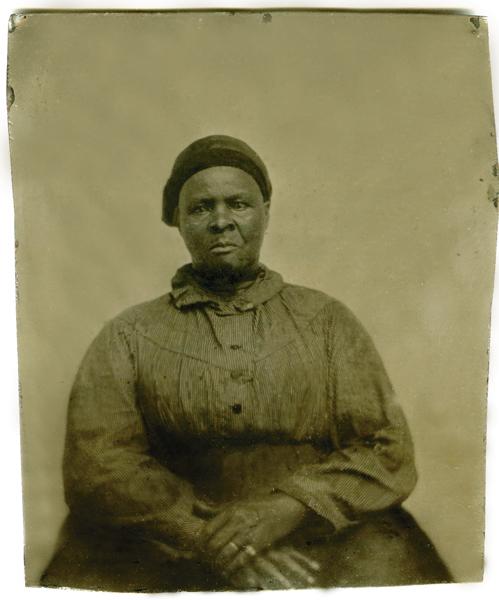
Hollywood, much like many cultures, still sees Black women who are dark-skinned and big to be manly and “aggressive,” and if you’re manly and aggressive, then it makes it that much harder for audiences to believe you could ever be a love interest in your own story.
It’s ironic because every male historical figure that was supposed to be dark-skinned was cast by a dark-skinned man. I genuinely believe that is one of the many reasons why Stagecoach Mary was not given her adequate representation in this new Netflix film; because no one falls in love with the fat Black woman.
We still live in an age where fat, dark-skinned women and most marginalized people are seen as less deserving of care and nurturing, so when we look at television, movies, or any form of mass media to see a fat Black woman during any time period being the love interest is laughable to most and unbelievable at best.
Caricatures & Stereotypes
I know from experience, and I see it every day where fat Black women and girls, especially those who are dark-skinned, are never supposed to “get the guy.” Instead of being a love interest, you are the bully. Stereotypes like these are why the Mammy caricature of seeing fat Black women as asexual is still ever-present in media and why I continue to advocate that fatphobia is racialized.
Someone in the body that Zazie Beetz occupies would never experience the harm that someone in a body like Mary Fields would experience. When you are a fat, tall, dark-skinned Black woman, you are susceptible to so much violence. And the media agrees. How can you focus on your love life when so much of your time is spent trying to stay alive and free from harm?
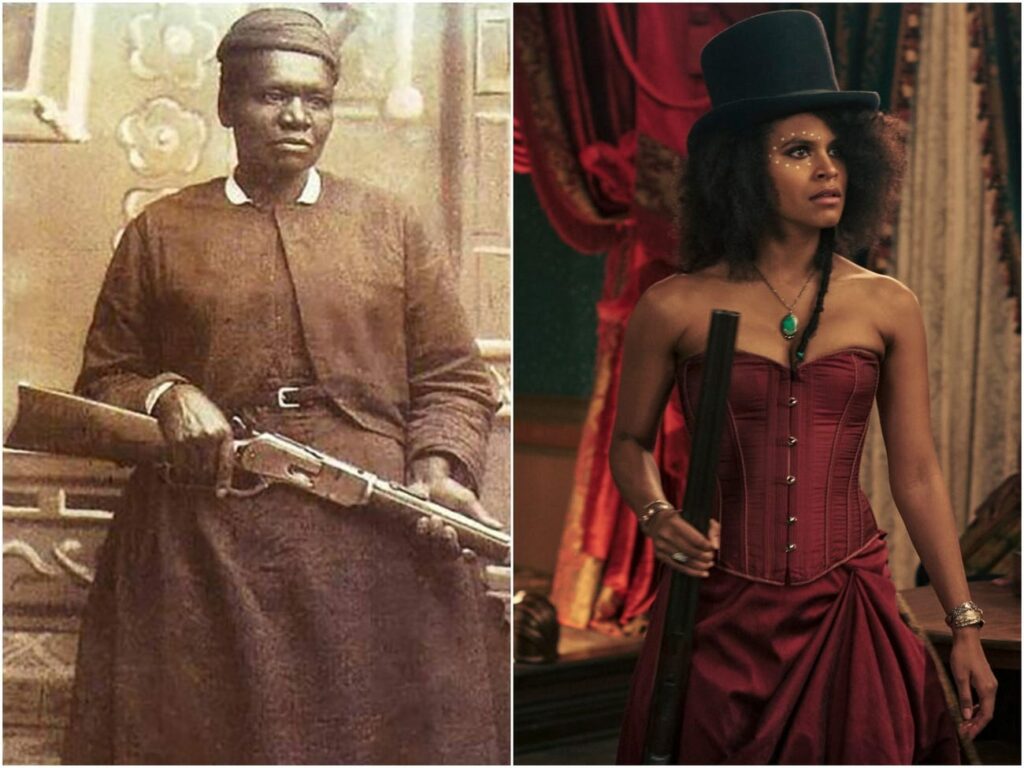
David Lee/Netflix/Public Domain.
In Fearing the Black Body: The Racial Origins of Fatphobia, Dr. Sabrina Strings reminds us that in the early 1900s, white women had already set the tone that said to be slim, white, and to limit food intake meant that you were closer to God, you were delicate, and you were pure. During this time, Stagecoach Mary was far from that, and her body in itself was demonized. This movie is no different.
Hollywood is Fatphobic
Hollywood’s casting directors still have an issue with colorism, fatphobia, and anti Blackness. To accurately tell the stories of our heroes and ancestors, you have to first start by casting them in all of their fullness and likeness.
Similar to my questions surrounding the casting of Ma Rainey – was Danielle Brooks too busy? Or how about Wunmi Mosaku? Or Uzo Adoba? Choosing to cast someone as light-skinned and slim simply because she’s playing the opposite of a male love interest is lazy and tiring.
When people use phrases such as “if we can see her, we can be her,” why is it not applicable here? This is erasure. This is violence. When we say fatphobia is systemic and denies people their livelihood, job opportunities, medical care, etc., this is just one of those examples.
It would have been nice to see a dark-skinned, 6 foot, plus-size actress playing the role of Stagecoach Mary.
It would be nice for the historical roles that fat Black women played in our history to be told with dignity. It would be nice to move past the caricature that those fat Black women are deserving of love on screen.
Yes, this is not a biopic, and yes, it has fictional licenses, and still, it would have been nice.

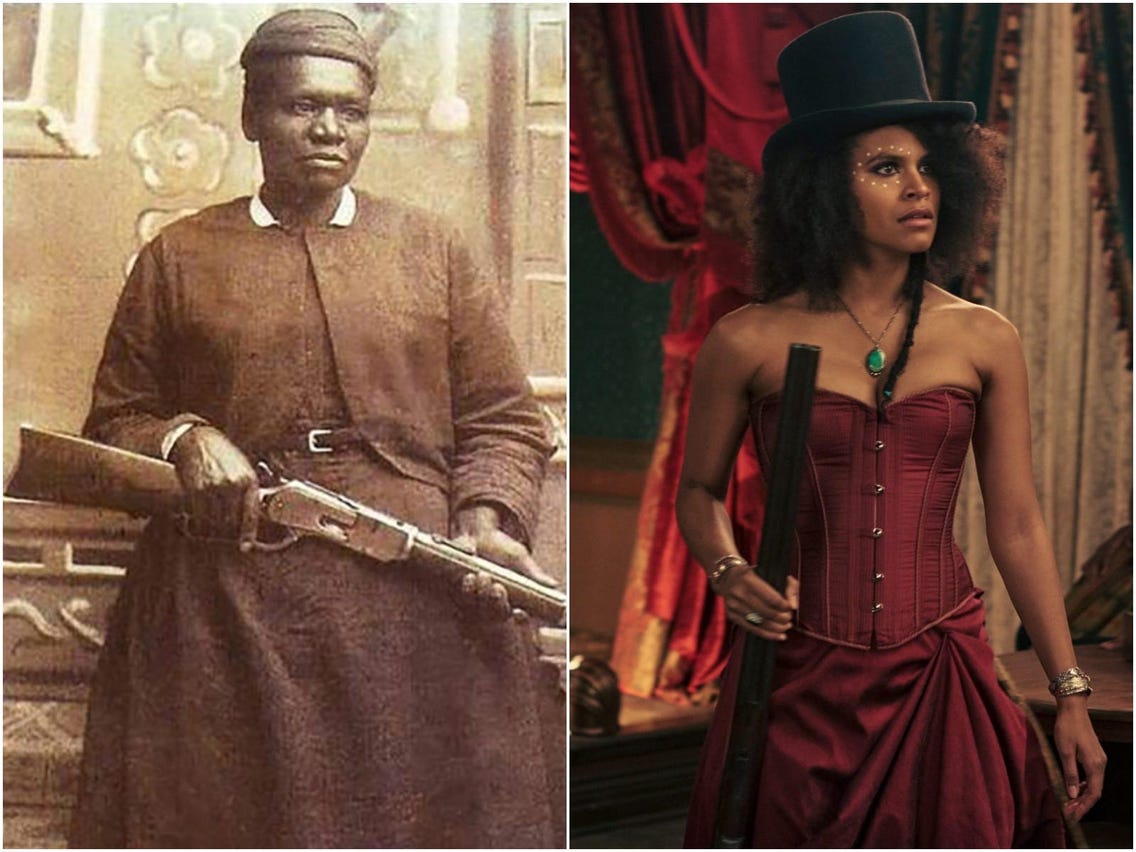
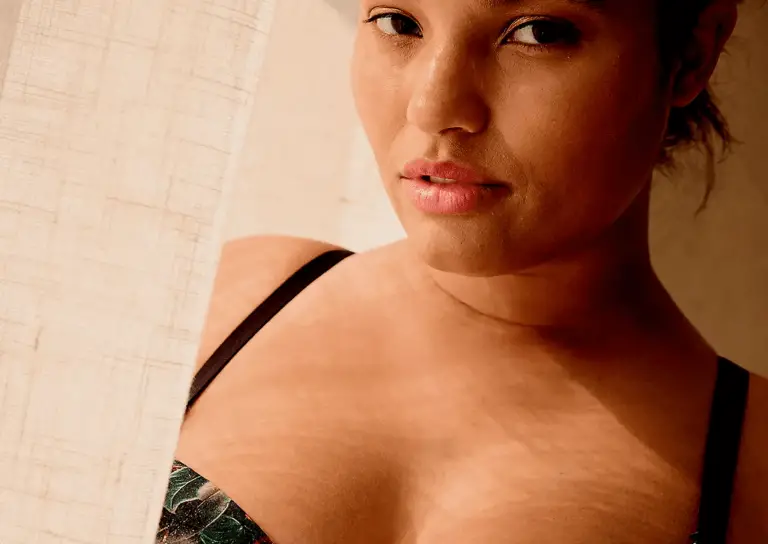
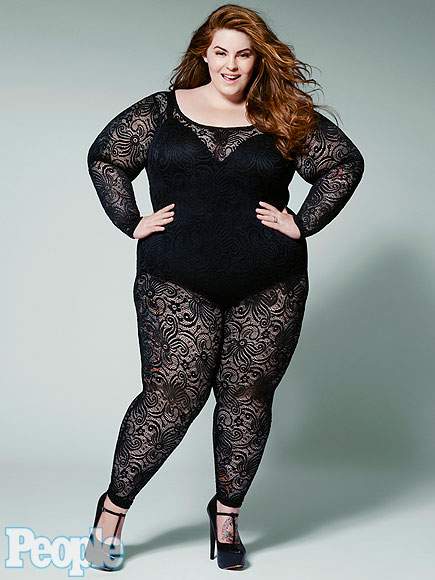
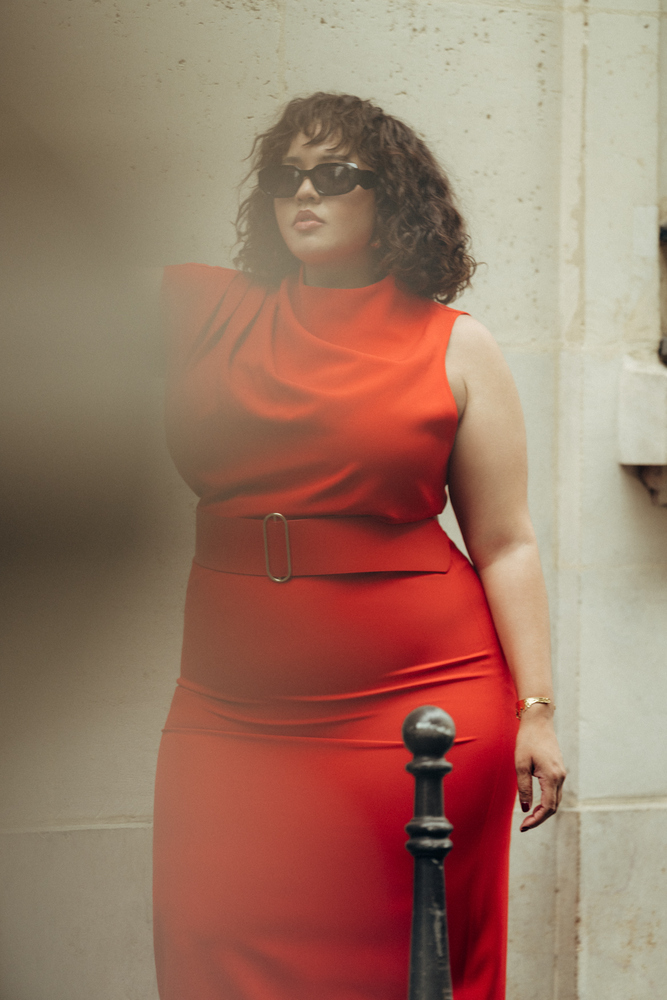
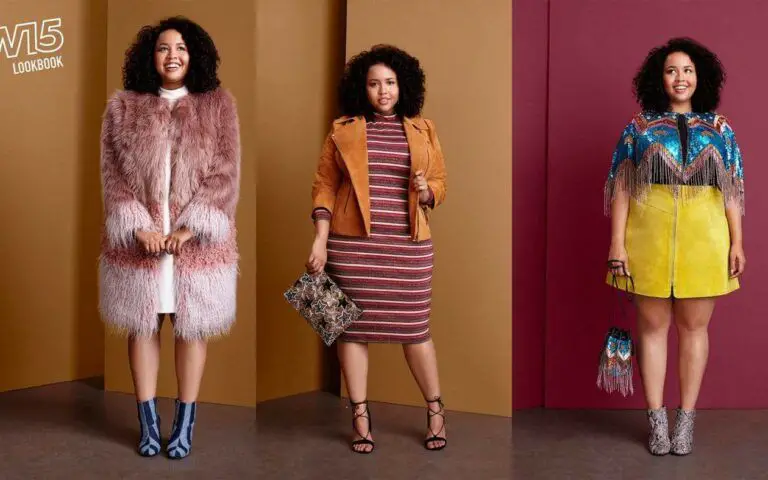
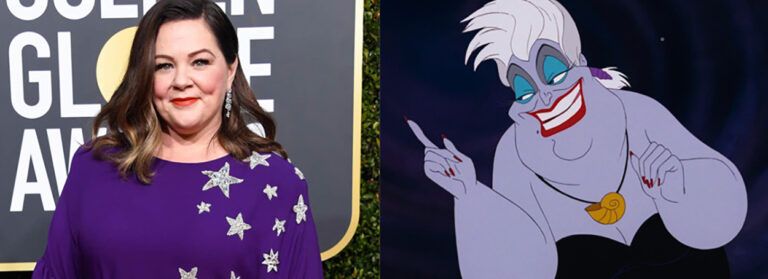
Looking forward to seeing this. Very disappointing to see how Stagecoach Mary’s worth has been reduced to eye candy (and of course, not even plus sized eye candy). I’m sick of the stock female characters men write. In this case, it’s a huge disservice to all black women, and in particular, Stagecoach Mary. Even though this is fictionalized, it’s a maddening form of “whitewashing” black history.
Its interesting that this is the topic But we are not talking about Rufus buck and Cherokee bill who were both half black half Native american being portrayed by darker skin actors. Colorism still grips ya and you cant even see your own $h1#
Please stay mindful that colorism has always been structured and targeted against people with darker skin — not people with lighter skintones. Hollywood barely ever gets anything right. It’s all about the almighty dollar, hopping on trends, playing it safe and accommodating the white gaze. You can bet the producers wanted to get flashy, known names in those roles to get the bang for their buck and drawing viewers in. They didn’t give a damn about getting the representation right. Stagecoach Mary, Cherokee Bill and Buck, like so many, many other folks of color deserve to have their stories portrayed by actors who resemble them. I’m Black and Choctaw (from the eastern band in Mississippi) and in my 50’s — on top of being a big, plus size sister. I’ve dreamed my whole life of seeing actors in mainstream Hollywood films who look like me and the spectrum of skintones, hair textures and body types in my own family line. Not to mention seeing the marginalized stories and history that reflect our voices and experiences. I’ve reached a point where I’ve given up on seeing it in my tired lifetime…but maybe there’s budding hope for the younger generations out there. If you count yourself among them, I hope you see it one day. Stay safe, keep pushing for change and never stop learning.
Excellent Article.
Good evening.
I thoroughly enjoyed reading your article and agreed with your stance regarding Mary Fields and Hollywood’s interpretation of blacks in general and explicitly bastardizing our acceptable image by their standards.
I watched The Harder They Fall today while working from home, and I took the time to research Miss Fields. I thought why and not again, so thank you for expressing in words my thoughts.
Dank u wel,
Sharen Sierra
Stagecoach Mary Fields has impressed me for years now. They did not introduce us to women like her in history, so I am grateful I discovered her. In fact, she is the protagonist of a novel my literary agent is currently shopping. This is not about disliking Beetz. She herself said she was nothing like Mary. And yes, we know this is a fictionalized account, but if you are going to use actual historical figures, at least respect who they were. Otherwise, make up your own. How do those involved in the making of this film believe Mary herself would react to this characterization? I hope my version does her justice. I couldn’t agree with you more. Excellent article. Well said.
The casting not only negated her size and color but also her age. Based on your information she was 63 when she went to work for the post office. So why was the actress not only light skinned & thin but only 30 years old? I can picture so many older black actresses in this role. Age, just like size & color, should not be a barrier to a love story too. They would actual make a story richer, as all of these factors are so rarely portrayed in film.
There are so many ways they could have gone with the casting, and lets be blunt – the writing of the movie itself.
Excellent article. Thanks for the information!
Great article with great points but you left out another phobia Hollywood has: women over 40! Aside from being dark skinned and large, Stagecoach Mary was in her 60’s – not 30’s. This would have been more accurately played by someone like Viola Davis or Octavia Spencer.